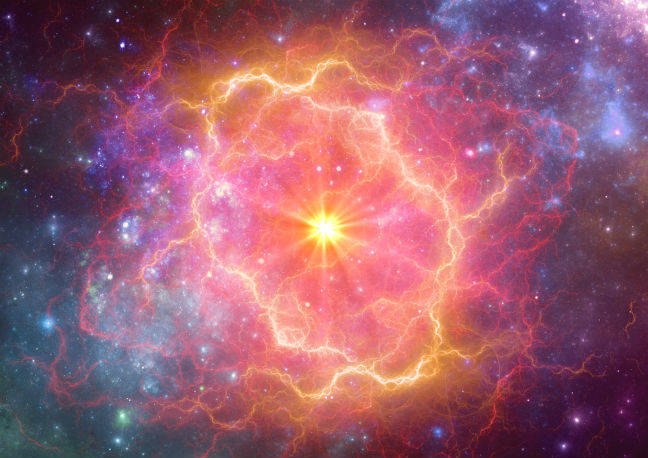Supernovae might explain mass extinctions of marine animals 2.6 million years ago
Deadly radiation bouncing around could have killed off animals in the Pliocene era
By Katyanna Quach 12 Dec 2018 at 07:01

A gigantic supernova explosion may have triggered mass extinctions for creatures living in Earth’s prehistoric oceans some 2.6 million years ago, according to new research published in Astrobiology.
Marine animals like the Megalodon, a fearsome shark around 10.5 meters (34 ft) long and with huge jaws full of sharp, pointy teeth, suddenly disappeared during the late Pliocene. Around the same time, scientists from the University of Kansas and the Federal University of São Carlos, noticed a peak in the iron-60 isotope in ancient seabeds.
“As far back as the mid-1990s, people said, ‘Hey, look for iron-60. It’s a telltale because there’s no other way for it to get to Earth but from a supernova.’ Because iron-60 is radioactive, if it was formed with the Earth it would be long gone by now. So, it had to have been rained down on us,” explained Adrian Melott, lead author of the paper and a physics and astronomy professor at the University of Kansas.
“There’s some debate about whether there was only one supernova really nearby or a whole chain of them. I kind of favor a combo of the two — a big chain with one that was unusually powerful and close. If you look at iron-60 residue, there’s a huge spike 2.6 million years ago, but there’s excess scattered clear back 10 million years.”
More:
https://www.theregister.co.uk/2018/12/12/supernovae_mass_extinctionevent/
